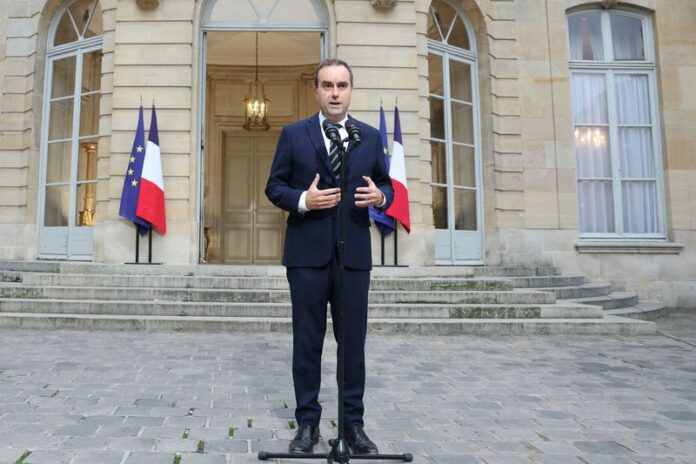France’s Prime Minister Sébastien Lecornu has resigned, less than a day after presenting his new cabinet.
Lecornu said he could not continue in office because “the conditions were not fulfilled” for effective government. He criticized opposition leaders for refusing to make compromises and members of his own coalition for focusing on personal political ambitions.
The resignation was announced by the Elysée Palace after Lecornu met with President Emmanuel Macron on Monday morning. Lecornu had been appointed only 26 days earlier, following the fall of the previous government led by François Bayrou. His administration lasted 14 hours, the shortest in modern French history.
The new cabinet had drawn criticism across the political spectrum. Some lawmakers called it too conservative, while others said it was not conservative enough. Facing the likelihood of immediate defeat in parliament, Lecornu stepped down, saying it was impossible to govern under such conditions.
The resignation has renewed calls from opposition parties for President Macron to either resign or call new parliamentary elections. Far-right leader Marine Le Pen said the situation could not continue, while figures from the left and conservative camps also demanded for change.
Since Macron’s re-election in 2022, France has struggled with a divided parliament. No party holds a majority, making it difficult to pass legislation. A snap election called in 2024 worsened the divisions instead of resolving them.
The political instability comes as France faces serious economic challenges. The country’s public debt has reached 113.9 percent of gross domestic product, and its budget deficit is nearly double the European Union’s 3 percent limit. Financial markets reacted sharply to the latest turmoil, with French stocks falling more than 1.5 percent and the euro dropping 0.7 percent against the dollar.
Lecornu was Macron’s fifth prime minister in two years. His resignation leaves the president with limited options: appoint another prime minister, form a coalition, or call new elections. Macron, whose term runs until May 2027, has so far ruled out both resignation and another early vote.
Observers say the crisis exposes the limits of the Fifth Republic’s political system, created in 1958 to ensure stable governance. Today, that stability appears increasingly out of reach.



